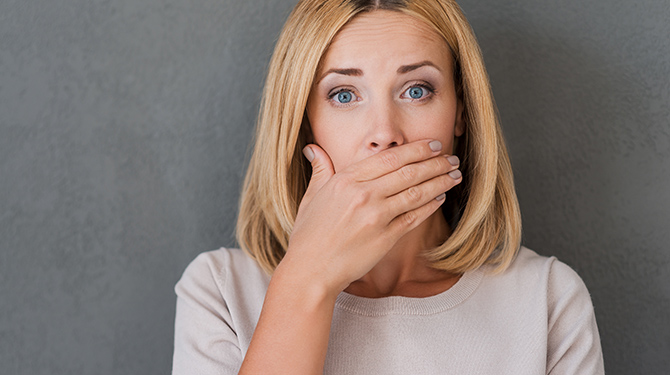
If you sometimes experience a loss of bladder control, you are not alone. Millions of people, a majority of them women, struggle with urinary incontinence, or the involuntary loss of urine. For some, it may just be a few drops that leak when they laugh or cough. For others, it can be a larger problem that prevents them from fully enjoying their lives.
There are several types of incontinence, including:
- Stress incontinence – Any movement – coughing, sneezing, laughing – can put pressure on your bladder and cause it to involuntarily release.
- Urgency incontinence – A strong, sudden urge to urinate that you are unable to hold back.
- Overactive bladder – An increase in the urge and frequency to urinate, more than eight times a day is considered abnormal.
- Functional incontinence – Physical or external obstacles, like arthritis or use of a wheelchair, prevent you from reaching a toilet in time.
- Overflow incontinence – When your bladder doesn't empty properly, causing leakage without any indication that you have to use the bathroom.
- Transient incontinence – A temporary condition affecting bladder control caused by a situation that will pass, such as infection or new medication.
What Causes Incontinence?
The urinary system requires complete coordination of the brain, bladder, and muscles of the pelvic floor. Unfortunately, significant health events can disrupt this, as well as muscle weakness, tightness, and a lifetime of poor bladder habits.
Urinary incontinence may be caused by a variety of conditions or as a result of certain events. This includes:
- Childbirth
- Surgical procedures, such as prostatectomy
- Chronic cough
- Menopause
- Obesity
- Pregnancy
- Physical inactivity
- Older age
- Neurological problems
Treating Incontinence
Luckily, with the correct treatment option, incontinence can usually be managed successfully. To diagnose incontinence, your doctor will first conduct a thorough medical exam and get an outline of your symptoms and medical history. You may require further tests such a urinalysis, a pelvic exam, or a blood test.
For many women with incontinence behavioral and lifestyle changes will effectively reduce their issue. Others may require pelvic rehabilitation physical therapy, including:
- Bladder training
- Pelvic floor muscle exercises
- Medical devices
- Surgery
Your doctor will develop a treatment plan that takes your individual needs into account and considers quality of life.